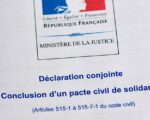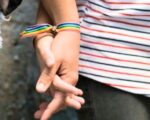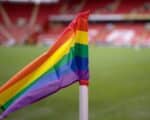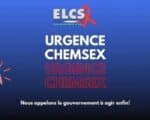>> IACHR Expresses Concern over Pervasiveness of Violence against LGBTI Persons and Lack of Data Collection by OAS Member States
Le bureau de Washington, aux États-Unis, de la CIDH, qui fait partie de l’Organisation des États américains (OEA), surveille et enregistre des cas de violence contre les personnes lesbiennes, gays, bisexuels, transgenres et intersexuées dans les Amériques.
Grâce à son Registre de la violence (disponible uniquement en espagnol), le CIDH a constaté qu’au moins 594 personnes LGBTI ont été abattues et 176 autres ont été victimes de blessures graves dans 25 des États membres de l’OEA pendant cette période. Près de la moitié des 594 meurtres étaient des femmes trans.
La majorité des États membres de l’OEA ne recueille pas de données sur la violence contre les LGBT. Le Registre CIDH dépend de sources d’État, de la couverture aux médias et de rapports de la société civile pour compiler le Registre. Malgré le fait qu’elle est incomplète, le Registre révèle les formes diverses et répandues de la violence vécue par les personnes LGBT aux Amériques.
Dans les onze pays de l’OEA où les LGBT sont criminalisés, le Registre n’a documenté que trois pays, la Jamaïque, le Guyane et la République Dominicaine, qui ont rapporté un total de 20 cas de meurtres et d’agressions graves. Cela peut sembler faible, mais nous suggérons que les cas de violence dans ces pays et les huit autres petits pays qui n’ont pas déclaré de cas, n’ont tout simplement pas été capturés par le Registre pour ces nations des Caraïbes.
La Jamaïque a indiqué onze cas avec des attaques violentes contre huit hommes gays et trois contre des personnes trans. Un homme gai et deux personnes trans ont été assassinés, y compris Dwayne Jones, l’adolescent jamaïcain poignardé à mort lors d’une fête près de Montego Bay en juillet 2013. L’autre personne trans et sept hommes gays ont été grièvement blessés. En République Dominicaine, cinq cas ont été signalés, y compris une presonne trans et deux hommes gais assassinés; et 1 personne trans et 1 homme gai grièvement blessés. En Guyane, trois personnes trans ont été assassinés et une lesbienne a été attaquée par de l’acide sur son visage, cou et ses jambes.
La CIDH a noté une certaine difficulté à faire reconnaitre l’orientation sexuelle ou le identité de genre des victimes, notamment en matière de meurtres. Les sources d’information, en particulier les rapports des médias, prennent rarement compte de l’auto-identification lors de la déclaration et souvent décrivent les LGBT victimes de la violence en termes insensibles.
Dans un grand nombre de cas d’agression, il y avait des preuves d’un niveau extrême de cruauté et de violence excessive en raison de l’orientation sexuelle et de l’identité ou de l’expression de genre. Il y a peu d’informations sur ne importe quel agresseur. La CIDH a déclaré qu’elle était troublée par les cas d’abus policière, notamment de la torture, des traitements inhumains et dégradants, et des attaques verbales et physiques; elle a constaté que les cas suspects d’abus par la police étaient sérieusement sous-rapportés.
Quatre-vingt pour cent des personnes tuées étaient des personnes trans de 35 ans ou moins. Les femmes trans et d’autres personnes de genre non conformes sont souvent ciblés par l’application de la loi qui a tendance à agir sur les préjugés et supposer qu’elles sont des criminels.
Les lesbiennes sont particulièrement à risque de violence en raison de la misogynie et l’inégalité des sexes dans la société mais elle est significativement sous-déclarée. Elles sont touchées de façon disproportionnée par la violence dans la famille. La CIDH a noté le manque de données sur la violence perpétrée contre les personnes intersexuées; ;es interventions médicales qui cherchent à les «normaliser», souvent sans leur consentement, ne sont pas signalés et ne sont pas dénoncés.
La Commission a exhorté les États membres de l’OEA d’adopter des mesures pour prévenir, enquêter, punir, et accorder des réparations aux victimes concernant ces actes de violence, y compris des mesures pour s’attaquer aux causes sous-jacentes qui alimentent cette violence. Elle a également appelé aux États de produire des données sur la violence contre les LGBTI et de protéger leurs droits humains.
>> The Inter-American Commission on Human Rights (IACHR) has continued to monitor the situation of violence against lesbian, gay, bisexual, trans and intersex persons (LGBTI) in the Americas, and as a result it has documented killings and other instances of violence against LGBT persons during a fifteen-month period (between January 1st 2013 and March 31st 2014) and has published an annex to this press release which contains an analysis of that information. Through this Registry of Violence, the Commission found that during this period, at least 594 persons who were lesbian, gay, bisexual or trans (LGBT) or were perceived to be LGBT were killed, and 176 were victims of serious non-lethal attacks to their integrity apparently related to their sexual orientation, gender identity and/or gender expression in 25 OAS Member States.
The IACHR notes that the majority of OAS Member States do not collect data on violence against LGBT persons. With a few exceptions of State reporting, the IACHR had to resort to other sources for information such as media coverage and reports from civil society organizations. The Registry of Violence is not exhaustive but reveals the diverse and pervasive forms of violence experienced by LGBT persons in the Americas. The IACHR notes the difficulty in asserting the sexual orientation or gender identity of victims, particularly with respect to killings. Sources of information, particularly media reports, seldom take into account self-identification when reporting these crimes; in fact, the media often portrays LGBT persons who are victims of violence in insensitive terms. In this sense, the IACHR notes that voluntary professional codes of conduct for the media and journalists can play a fundamental role in combating discrimination and in promoting equality principles.
The data collected by the IACHR makes apparent that many of these cases of violence against LGBT persons were committed with verbal violence related to the perceived sexual orientation or gender identity of the victims. This is particularly evident in cases of non-lethal violence. Also, the Commission notes that a large number of cases in this Registry evidence high levels of cruelty and heightened levels of violence based on both the perception of sexual orientation and gender identity/expression.
As for the perpetrators of violence against LGBT persons, although in the majority of cases, particularly killings, there is little or no data, the IACHR highlights that it is concerned about the troubling information regarding instances of police abuse, such as torture, inhuman and degrading treatment, and verbal and physical attacks. The IACHR was informed that there is severe underreporting regarding instances of police abuse.
According to the information collected, the vast majority of killings targeted gay men and trans women, or those perceived as such. The Inter-American Commission is particularly concerned about the young age of trans victims. According to the data collected in the Registry of Violence, eighty percent of trans persons killed were 35 years of age or younger. Violence against trans persons, particularly trans women, is the result of a combination of factors: exclusion, discrimination and violence within the family, schools, and society at large; lack of recognition of their gender identity; involvement in occupations that puts them at a higher risk for violence; and high criminalization. Trans women and other gender non-conforming persons are often targeted by law enforcement agents, who tend to act upon prejudice and assume they are criminals; and are often discriminated against in the justice system.
Lesbian women are at particular risk for violence because of misogyny and gender inequality in society. The IACHR has historically received information on the vulnerability of lesbian women to acts of sexual violence, or intra-family violence; however, there is major underreporting of these acts. Lesbian women are disproportionately affected by violence exerted by their family members.
The IACHR notes that there is no data on instances of violence against intersex persons, mainly because the majority of acts of violence against intersex persons, most notably, medical interventions seeking to “normalize” their bodies is the result of State-approved medical protocols, and is not reported in the media, or denounced by the families or organizations. These interventions are rarely medically necessary, are often performed without their informed consent or that of their parents, and cause intersex children and adults great harm, including, but not limited to, chronic pain and life-long trauma, irreversible genital insensitivity, sterilization, and severe mental suffering, which is partly caused by the secrecy involving these procedures.
The Commission reiterates its concern about the situation of violence and discrimination against LGBTI persons, and against those perceived as such in the Americas, and urges OAS Member States to adopt measures to prevent, investigate, punish and provide reparations concerning these acts of violence, including measures to address the underlying causes fueling this violence. For this purpose, the IACHR urges OAS Member States to produce data on violence against LGBT persons, with a view to adopt public policies that protect their human rights.
Additionally, the Inter-American Commission on Human Rights urges OAS Member States to revise medically accepted protocols calling for cosmetic and non-medically necessary surgeries for intersex infants, children and adults; and to address underlying causes of violence against intersex persons linked to a general lack of respect and acceptance of body diversity in society.
A principal, autonomous body of the Organization of American States (OAS), the IACHR derives its mandate from the OAS Charter and the American Convention on Human Rights. The Inter-American Commission has a mandate to promote respect for human rights in the region and acts as a consultative body to the OAS in this area. The Commission is composed of seven independent members who are elected in an individual capacity by the OAS General Assembly and who do not represent their countries of origin or residence.


















